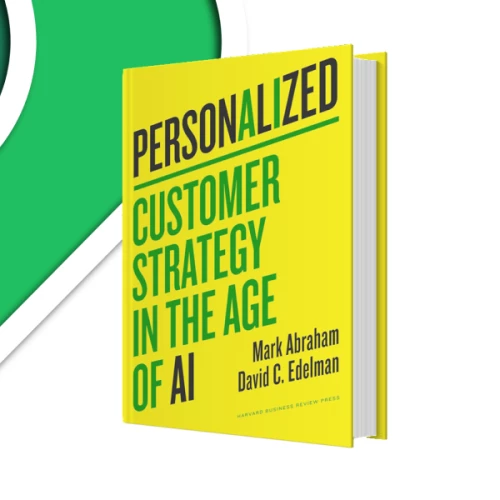BCG’s third annual report assesses the growth of new modalities in 2025 and potential implications for the biopharmaceutical industry and patients.
Featured Insights
Biopharma

Article
September 3, 2025
From regulatory affairs to shop-floor support to tech transfers, the GenAI opportunities for biopharma and medtech companies are real—and growing.

Article
May 29, 2025
How do companies design a fit-for-purpose model that combines the best attributes of big and small pharma, biotech, venture capital, and tech company approaches?

Article
March 7, 2025
Persistent underdiagnosis and undertreatment of common conditions have created a massive gap in the health care market for US women.

Article
February 18, 2025
The industry’s ability to unlock the next wave of innovation and to continue its strong record of shareholder returns is at risk.
Next-Generation Commercial Models

Article
April 12, 2023
The Team B approach involves assembling an independent cross-functional team to conduct rapid reviews of launch plans and market conditions for new pharmaceutical products.

Article
December 5, 2024
Biopharma companies can leverage new sources of patient data and technology to create more personalized patient experiences that have the potential to deliver better health outcomes.
Bold Advances in Health Care

Interview
January 27, 2026
SHL CEO Ulrich Faessler on his role as a change leader and AI’s growing influence on the health care industry.
Article
March 19, 2025
Bausch + Lomb CEO Brent Saunders talks about his leadership philosophy and how the company is excelling in such an innovation-focused industry.
Interview
September 12, 2024
The global biopharma company’s chief data and technology officer discusses its initiative to inject digital capabilities across the value chain and the importance of prioritizing patient outcomes.
Interview
July 18, 2024
Mike McDonnell explains how the global biotech is charting new paths to patients via Fit for Growth, its corporate transformation initiative.
Interview
February 12, 2024
Chief Digital and Technology Officer Lidia Fonseca explains how Pfizer is leveraging digital and data across the value chain and the biggest wins so far.
Book
Personalized: Customer Strategy in the Age of AI
Personalization is a $2 trillion opportunity. BCG's new book offers a playbook for unlocking digital transformations to capture your share of this personalization prize.
Health Care Payers, Providers, Systems, and Services

Article
January 21, 2026
Recent regulatory initiatives, heightened consumer expectations, and rapid AI adoption are motivating health care players to reimagine the sector’s future around a more compelling patient experience.

Article
July 15, 2025
High attrition rates cost US providers more than $60 billion a year—just for nurses.

Article
April 10, 2025
States and payers should consider integrated care models that combine Medicare and Medicaid benefits for dual eligibles to improve outcomes and lower costs.

Article
January 6, 2025
In the health care industry, women have achieved gender parity at nearly all levels—except CEO. What can be done to break the glass ceiling?
Video
How M&A Can Foster Innovation in Health Care
To spur innovation and compete for products in the early ideation phase, companies should set aside funding for acquisitions, licensing, and partnerships, says Baxter's John Ranz.

Article
January 30, 2025
Payers that outsource their business processes can quickly advance their capabilities to elevate operational efficiency and competitive advantage while reducing costs.
Medical Devices and Technology

Article
July 1, 2025
For medtech leaders, six actions are key to turning their tariffs response into a competitive advantage.

Article
May 7, 2025
A surge in AI-driven medical devices ten years in the making is poised to accelerate further, powered by regulatory evolution, venture capital investment, and the promise of better, more efficient care.

Article
June 3, 2025
GLP-1 drugs are reshaping chronic disease care. What does that mean for medtech over the next decade?

Article
March 18, 2025
As the regulatory burden in medtech grows, a structured approach to using generative AI can provide dramatic gains in efficiency, accuracy, and other key metrics.

Article
February 22, 2024
By developing products for a broader base of patients and markets, medtech companies can improve health outcomes, generate business advantages, and contribute to healthier societies overall.
Global Health

As the largest employer and controller of capital and supply chains, the private sector is well positioned to set new industry standards and support planetary and human health in the face of climate change. Actions to strengthen food systems, rethink urban infrastructure, improve health care responses, and reshape insurance models will be essential to mitigating risks and building climate resilience.

Article
November 18, 2024
Extreme weather events such as cyclones and floods will drive increases in the incidence of sickness and death from malaria in Africa, according to a new study.

Article
January 4, 2024
BCG conducted a study of more than 70 organizations—including philanthropies, multilateral development banks, government agencies, nongovernmental organizations, private sector actors, and others—to understand how key stakeholders are approaching the climate-health challenge.
Video
December 4, 2023
Human Health Depends on Planetary Health
Too often is it taken for granted that the environment is a massive determinant of human well-being. Putting health at the center of our climate discussions is critical.
Explore more
Industry
Industry









